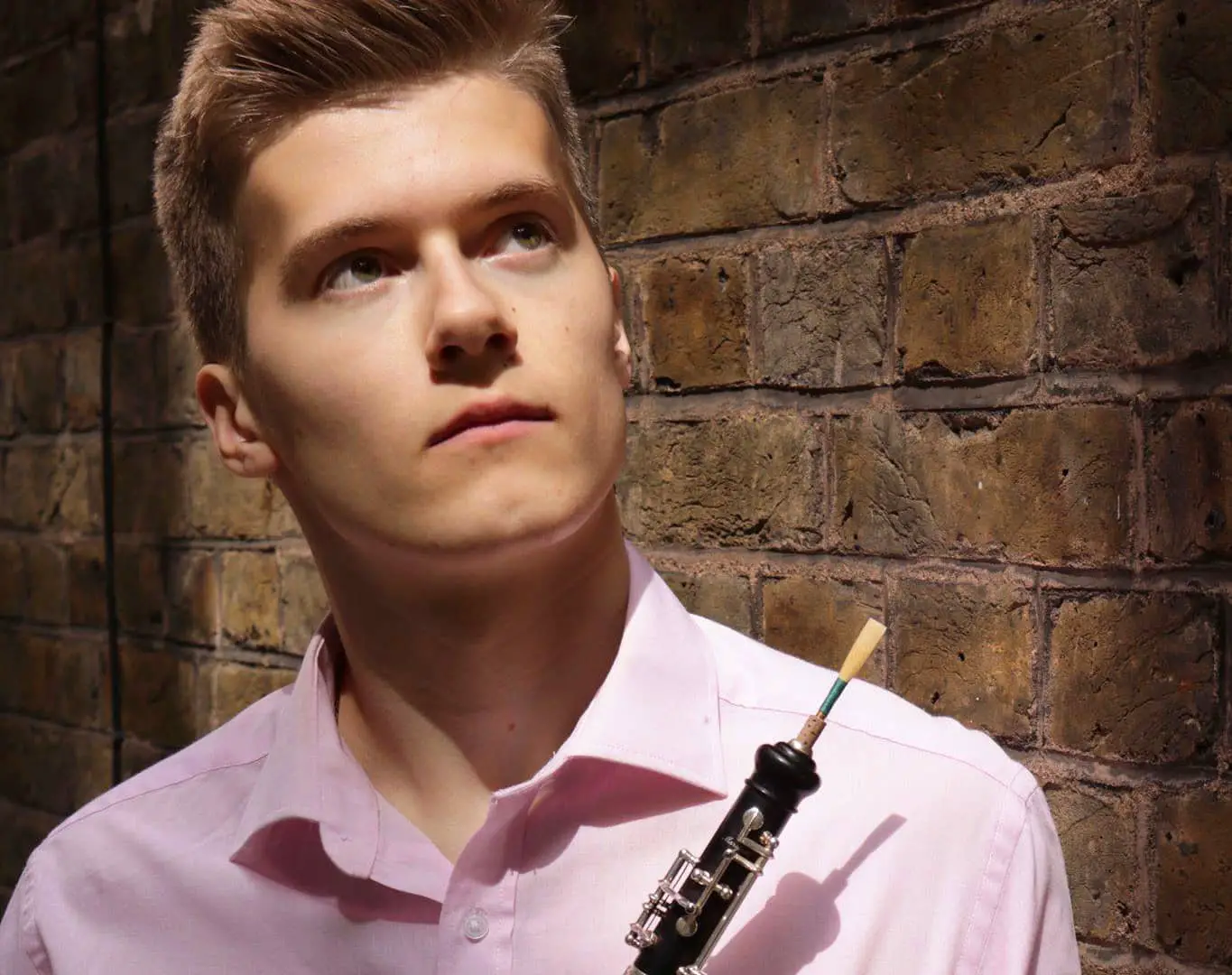Jonathan Dodd shares his review of the latest Isle of Wight Symphony Orchestra (IWSO) concert. Images with kind permission of Allan Marsh. Ed
On Saturday, 18th March, I took my seat for the third concert of the Isle of Wight Symphony Orchestra’s 2022-2023 season. I was looking forward to three pieces, two of which I had never heard, and one that I wasn’t familiar with. The concert hall was, as usual, very full, and there was a happy buzz in the air, as the audience settled down and talked about what was to come. The programme included an Oboe concerto and a new soloist. It promised to be another grand occasion.
The orchestra assembled and tuned up, and our esteemed Mr Jonathan Butcher appeared in his now-familiar dark red shirt and festive waistcoat. Once he had the complete attention of the entire orchestra and audience, he raised his baton and the concert began.
Brahms Variations on Haydn, maybe
In 1873 Johannes Brahms wrote some variations for two pianos and subsequently orchestrated, based on a divertimento written by Joseph Haydn in the late 18th century, and probably originating with one of his students. Arguments about the origin of pieces of music is not a modern phenomenon, it seems.
The first variation starts with a simple and stately tune introduced by the wind section, with a lovely bass line from the double basses, and gorgeous tunes from the French horns. There were eight variations in all, each varying in tone and tempo, and building to a thrilling finish. The whole piece was very listenable, and played throughout with verve and skill by the whole orchestra. I shall definitely be returning to this.
Strauss and the unusual Oboe request
After a pause for the orchestra to make space, the soloist Fergus McCready made his way to the front in an impeccable white shirt, about to play the Oboe Concerto in D major, written by Richard Strauss in 1945. This was requested by John de Lancie, an American oboist serving in the US Army, who occupied the area around Strauss’s home. Initially unenthusiastic, Strauss completed it in six months.
Unfortunately for de Lancie, Strauss’s request for him to premiere it was refused by the principal oboist in his orchestra, so he had to hand the honour to another oboist in another orchestra.
I was struck, while listening to Mr McCready’s playing, that he seemed not to be breathing at all, or that he had extraordinarily large lungs. The concerto is light and flowing in style, with very long note-laden phrases that seem to go longer that a human being can stand, and requiring very fast and complex fingerwork.
I honestly don’t know what magic he used to produce so many notes so precisely, and I found myself holding my own breath in sympathy whilst listening spellbound to the magical movement of music flowing like water in a mountain stream in front of me.
I’m sorry to say that I hardly noticed the orchestra at all, I was so wrapped up in it. I apologise for that, but I had no idea an oboe could be used to make such extraordinary sounds. It was amazing, and rather special. Thank you.
Tchaikovsky’s thrilling Third Symphony
After the interval we settled down to Tchaikovsky’s Third Symphony. I discovered Tchaikovsky in adolescence, and loved his Fifth and Sixth symphonies, along with Mozart, which I played rather a lot. As my life expanded, and my musical tastes, they became a little neglected, so I had no recollection of ever hearing this symphony. I was looking forward to making its acquaintance.
Tchaikovsky wrote this symphony very quickly in 1875, around the same time as Swan Lake. It is named ‘Polish’ since it used polonaise music, which we in the West associated with Chopin in the late 19th Century, but which originated as a Romanov Russian musical tempo. So a more appropriate name would be ‘Russian’.
It starts with themes by violins and horns, unmistakably Tchaikovsky and Russian, and I relaxed into it as with an old friend. There is a sad and mysterious feel to it, which dispels gradually into a bright, fast-paced tumbling crescendo with a thrilling finale.
The second movement is a contrast, with a lovely tune from the woodwind section, with a gently-pulsing background. I loved it. The third movement is wistful and elegiac, with lovely strings, and a longing, enhanced by an apparent bird call, with a subdued ending. The fourth movement starts off lively and hopeful, with lots of flutes and a faster tempo.
The Finale is bigger and very positive, with strong themes and lots of volume. It builds towards a thrilling climax with typical Tchaikovsky pace and volume, with all musical guns blazing. It was enormous, exciting, and very satisfying. A truly grand ending to a great evening of music.
Thanks to all the players for being wonderful, as always, and thanks to Mr Butcher and Mr McCready, who were magnificent. As always, thanks to Phillip Littlemore for his detailed and enlightening programme notes.
Next Concert
The IWSO returns on Saturday 13th May 2023 at 7.15pm at the Medina Theatre, with Liszt’s Hungarian Rhapsody No. 2, and Ravel’s Pavane pour une infante défunte.
Following that is the welcome return of Mr Charlie Lovell-Jones as soloist for the Glazunov Violin Concerto in A minor, and then Rimsky-Korsakov’s wonderful Scheherazade. What an evening that’s going to be! I can’t wait!
There’s bound to be a full house again, so get your tickets as soon as you can, or better still go for a season ticket. It’ll be worth it.
See you there! And have a great Spring!





